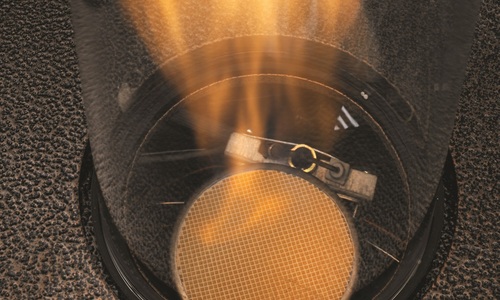5 minute read
|
Gas heating is a popular choice for many homeowners, but it's also surrounded by a lot of myths. Understanding the facts can help you make safer and more informed decisions about using gas heating systems. Gas heaters are generally safe when used properly. Most gas tanks are designed to be puncture-resistant, which significantly reduces the risk of leaks. As long as you connect the tank correctly to the unit, it should operate safely without issues. Propane, one of the most common fuels for gas heating, has a low flammability rating compared to other fuels. Plus, it has a strong odor that makes it easy to detect if there’s a leak. This feature adds an extra layer of safety in case of an emergency. Want more information? Have a question? Contact us today, and we will be happy to help! nitrate,nitrate salt,sulfate-free,HNO₃,Ionic compounds MIANYANG KEJIXIN TRADING CO., LTD , https://www.kjxnitrate.comGas Heating and Safety

Gas Heating and the Environment
Propane Gas Heaters
Tabletop Patio Heaters:
Portable Gas-Fired Space Heaters:
Tank Top Propane and Infrared Heaters:
Oil-filled heaters may emit a small amount of smoke or a noticeable smell when first turned on, but this usually goes away quickly. When choosing a heater, look for safety features like overheat protection and a tip-over switch, which can prevent accidents.
Both gas and oil-filled heaters release some carbon monoxide into the air, which is why proper ventilation is essential. For safety, it's best to use these heaters outdoors or in well-ventilated areas.
Environmental impact is another area where misconceptions abound. Many people believe gas heating is harmful to the environment, but that's not entirely true.
Eco-friendly: Propane-powered heaters are lead and sulfur-free, producing fewer greenhouse gases than other fuel sources. They burn cleaner, emitting only water vapor and carbon dioxide. If you're looking for a greener option, propane heating is a solid choice.
Oil-filled heaters are non-toxic and biodegradable. When installed and used correctly, they can be an environmentally friendly way to stay warm during colder months.
Cost-effective in the long run
While gas heating systems might have a higher upfront cost, they tend to be more affordable in terms of maintenance. Fuel prices fluctuate, but propane is often cheaper than traditional heating oil. This can lead to long-term savings.
Propane:
Propane is a byproduct of natural gas processing and petroleum refining. It's also known as liquefied petroleum gas (LPG) and contains small amounts of propylene and butylene. To make leaks easier to detect, an odorant called ethanethiol or thiophene is added.
With approximately 91,500 BTUs per gallon, propane is a highly efficient heating source. It burns cleaner than most other fuels, leaving behind minimal environmental impact.
These heaters are versatile and can be used year-round. Whether you're enjoying a cool summer night or staying warm during the winter, propane heaters provide reliable warmth. Outdoor patio heaters are typically tall, portable, and require no installation—just connect a propane tank and turn it on.
These compact models are perfect for your patio table. They can heat up to a 20-foot radius and blend seamlessly with your outdoor decor. Choose a tabletop model based on your specific needs and space requirements.
Many portable gas-fired space heaters run on kerosene or heating oil. They can effectively warm up to 2,500 square feet, depending on their size and BTU output. The higher the BTU rating, the larger the area the heater can cover.
Infrared heaters are popular because they provide instant warmth, similar to sunlight. They’re ideal for personal spaces and can cover large areas. Some models come with built-in infrared elements for immediate heating, making them a great choice for outdoor use.
Go Back To Blog